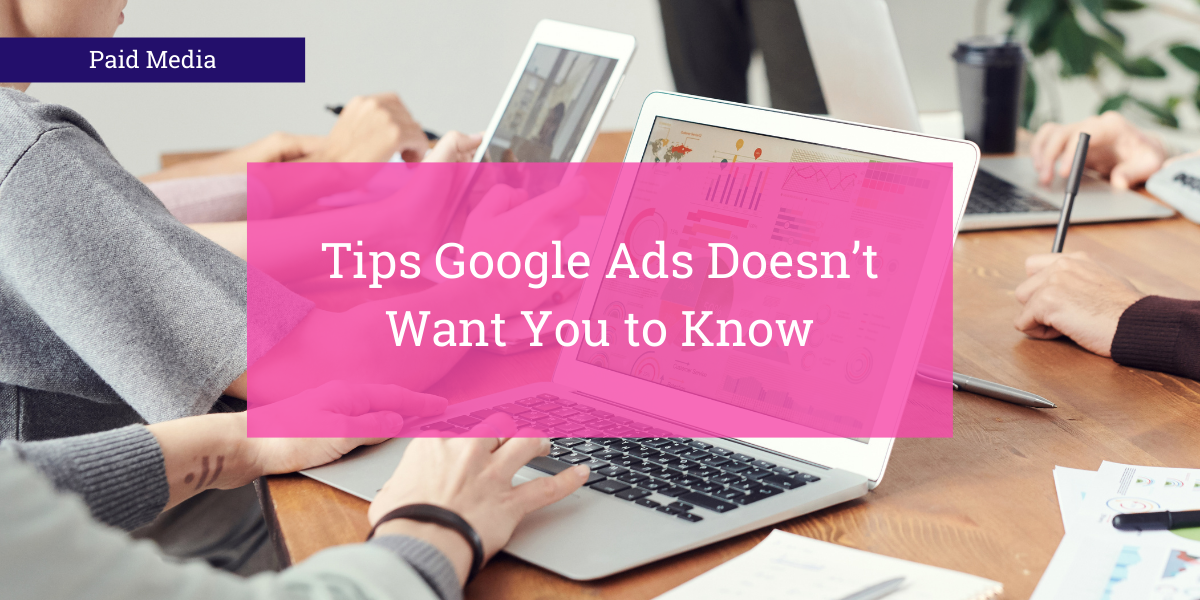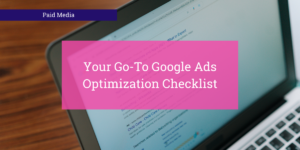Hey there, fellow marketers! Are you tired of your Google Search Ads campaigns feeling like a lost puppy? Don’t worry, I’ve got some tricks up my sleeve to help you fetch some serious results. Let’s dive in and supercharge your Google Search campaigns.
What is Google Ads and When Should It Be Used?
Google Ads, formerly known as Google AdWords, is an online advertising platform developed by Google. Businesses can display ads on Google’s search engine results pages (SERPs) and other Google properties like YouTube, Gmail, Discover, and more. Their search campaigns are a pay-per-click (PPC) advertising system, meaning advertisers only pay when someone clicks on their ad.
Google Ads offers multiple ad placement options fitting into various stages of the consumer journey and the marketing hourglass, but this article will focus on lower-funnel search campaigns.
Google Ads is perfect for:
- Increasing visibility: Making your business the top dog in your industry.
- Driving traffic: Getting more relevant people to visit your website.
- Generating leads: Finding new customers to join your pack.
- Boosting sales: Drive sales by showcasing your products or services to interested audiences.
Now, let’s get to the bone of the matter…
1. Exclude Google Search Partners
Think of Google Search Partners as those pesky neighborhood cats that always seem to show up uninvited. They can be a distraction, so it’s best to keep them at bay. By excluding them, you’re ensuring your ads are only shown on Google’s search engine results pages, where they’re more likely to be seen by relevant audiences. Are you sick of the dog references yet?
2. Be Selective with Keywords
When training your dog, you don’t want to give them too many commands at once. It’s the same with keywords. Stick to a few well-chosen ones for each ad group. Don’t overload your campaigns with too many keywords, or you’ll end up confusing your audience (and yourself). We recommend less than 10 keywords per ad group.
3. Avoid Using Only Broad Match Keywords
Broad match keywords are like letting your dog off the leash without a collar. They can wander off and end up in all sorts of unexpected places. Use more specific keywords (like phrase match or exact match) to keep your campaigns on track. Be sure to monitor your campaign keywords regularly and add negative keywords to continuously improve relevance.
4. Optimize Ad Placements
Imagine you’re trying to find a dog-friendly park. You wouldn’t want your dog to end up in a cat-only park, would you? The same goes for your ads. Take a look at where your ads are showing up, and make sure they’re on websites that align with your brand and audience. You can even exclude certain websites or YouTube channels if you’re unhappy with the results.
5. Don't Always Trust Google's "Ad Strength" Recommendations
There’s debate in the industry about whether or not Ad Strength even matters, and a recent research report shows no link between ad strength and key performance metrics. So, don’t always rely on Google’s recommendations. It’s much better to trust your instincts and create relevant ads for your audience. Because even the best-trained dogs can make mistakes.
Bonus treat: After your ads are live for several weeks, look into the “Ad Quality” score in the reporting metrics. It’s a much better way to measure your ads’ relevance. If any of your ads score below 7/10, it might be worth reworking the ads or the landing page.
6. Don't Increase Your Budget Blindly
Throwing more money at a problem is like giving your dog extra treats when they’re already full. Sure, your dog wants the treats, but is it really helping anyone? Contrary to Google’s advice, increasing your campaign budget doesn’t always translate to better results. It can lead to higher costs per click and conversions without necessarily attracting more relevant leads. Before increasing your budget, make sure you’re targeting the right audience and using the right keywords.
7. Harness the Power of Organic Search
Building a strong organic online presence is like training your dog to come when called. It takes time and effort, but the rewards are worth it. Google Ads can work wonders in the short term but don’t overlook the long-term benefits of organic search. Invest in SEO and content marketing to build a solid foundation. Organic growth equals brand authority. Strike a balance between paid and organic efforts for a holistic digital marketing strategy.
Conclusion
Navigating the world of Google Ads can be daunting, but with a little patience and persistence, you can turn your search campaigns into a tail-wagging success.
As AI revolutionizes search and digital advertising, staying updated with reliable resources is crucial. Websites like Search Engine Journal and newsletters like Stacked Marketer provide invaluable insights and updates to keep you ahead of the curve. By staying informed and adapting to emerging trends, you’ll be well-positioned to leverage the full potential of Google Ads.





